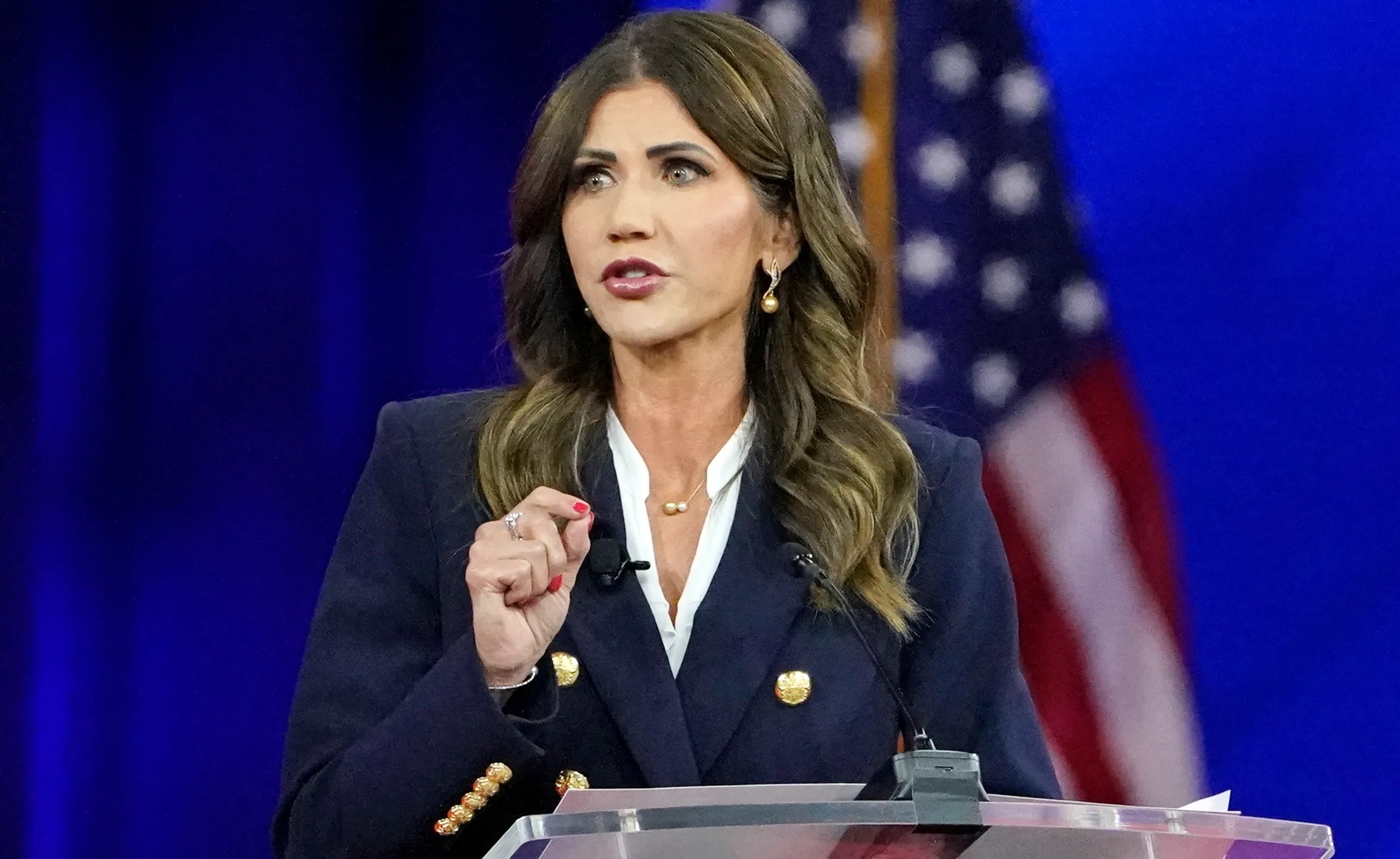The Pine Ridge Reservation in South Dakota has taken an unprecedented step by barring Republican Governor Kristi Noem from its lands due to her comments on immigration enforcement at the U.S.-Mexico border.
In an official statement on Friday, Tribal President Frank Star Comes Out declared Noem banished from the Oglala Sioux Tribe’s homelands, citing concerns for the safety of the tribe, referred to as “Oyate.”
Star Comes Out accused Noem of exploiting border issues to boost her political standing, alleging that she sought to aid Donald Trump’s re-election and increase her chances of being chosen as his vice president.

Governor Noem (Credits: FOX 5 San Diego)
He emphasized that some migrants arriving at the U.S.-Mexico border are indigenous people from El Salvador, Guatemala, and Mexico seeking a “better life” and criticized the use of cages and razor wire, supplied by South Dakota, echoing practices during the Trump Administration.
In response, Noem issued a statement on Saturday, expressing disappointment at President Star Comes Out for injecting politics into discussions about federal law enforcement failures at the southern border and tribal lands. Noem reiterated her commitment to addressing the challenges and urged collaborative problem-solving.
President Star Comes Out also took issue with Noem’s claims about a gang named Ghost Dancers allegedly committing murders on the Pine Ridge Reservation and having ties to drug cartels using South Dakota reservations.
He found these remarks offensive, particularly regarding the Ghost Dance, a sacred ceremony for the Oglala Sioux. Noem defended her statements, emphasizing the importance of spending time together to build relationships and expressing readiness to collaborate with Native American tribes.
This unprecedented banishment reflects a tense intersection of tribal sovereignty, immigration politics, and cultural sensitivity. It underscores the complexities of discussions surrounding immigration, federal law enforcement, and tribal relations.
As tribal leaders like Star Comes Out take a stand against political figures they perceive as detrimental to their communities, it prompts a reevaluation of the dynamics between state and tribal authorities, highlighting the need for respectful dialogue and collaboration to address shared concerns.























